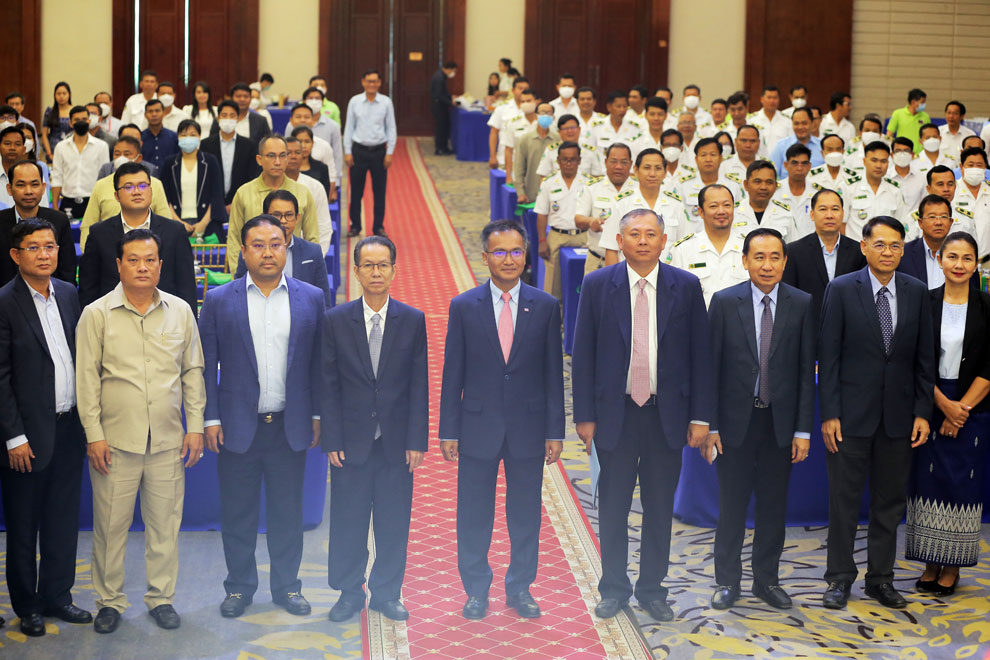
Smoke released from a factory in Phnom Penh. POST STAFF
Senior officials from the Ministry of Environment urged sub-national administrations and stakeholders at all levels to pay closer attention to identifying environmental challenges. They should set out action plans to reduce pollution, in order to participate to promoting the well-being of the public.
About 200 representatives from the institutions under the ministry attended an October 19 workshop on “Environmental Protection”.
The workshop aimed to review and discuss measures to address environmental challenges, and suggest future initiatives.
Ministry secretary of state Sao Sopheap said the workshop was held to gather input related to environmental protection ahead of an October 31 meeting, scheduled to discuss the results of the ministry’s work this year and to outline next year’s working direction.
Sopheap added that despite the context of peace, political stability and development in all areas, the associated population expansion in urban areas and rapid socio-economic growth presented many challenges. These included issues relating to environmental quality, the balance of the ecosystem, public health and social welfare.
“Urban areas in large towns are facing an increase in the amount of solid waste created and a decrease in soil and air quality,” he said.
“Noise pollution, traffic congestion, increased demand for energy and a lack of green spaces, require institutions at all levels – as well as private sector development partners – to work together to find solutions,” he added.
Sopheap said the ministry has worked hard to turn challenges into opportunities. It had urged sub-national administrations and institutions to identify challenges and implement strategic plans which would reduce their impact.

About 200 representatives from the institutions under the ministry attended an October 19 workshop on “Environmental Protection”.Hong Menea
“To ensure the effective implementation of environmental protection, stakeholders at all levels must focus on identifying issues, and then work together to combat them,” he said.
“The ministry has put action plans and discretionary budgets in place to reduce pollution, protect the quality of the environment and protect public welfare,” he added.
Pak Sokharavuth, director-general of the ministry’s General Department of Environmental Protection, said the department had outlined three areas of focus: monitoring the quality of the environment (water, land and air), pollution control, and assessment of the impact of pollution.
He added that specialists regularly monitored pollution levels in many places, including factories. Data on hazardous waste levels would be compiled for use in setting out what measures needed to be employed.
Siem Reap provincial environment department director Sun Kong said the workshop was important, as it allowed sub-national administrations to address challenges and offer suggestions.
Kong added that Siem Reap was currently facing issues with waste management, as a lack of landfills meant they were unable to meet the demand of a growing urban population.
“We face difficulties dealing with the effective transport and disposal of waste as services have not been expanded to all 12 districts yet,” he said.
“Our landfill is not adequate for the task, but we are discussing establishing a new facility,” he added.












